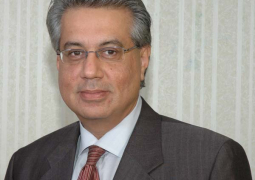Speaking at the briefing session, EPI communication officer Saharu Kanteh, said the introduction of this HPV, vaccine, which is human papilloma virus vaccine, was to prevent cervical cancer in women in The Gambia.
He said the vaccine and immunization against HPV is one of the most cost-effective public health interventions, and since the establishment of EPI programme in 1979 it has recorded success.
The HPV vaccine will be introduced in phases, first in the West Coast Region for two years starting November 2014, then roll out to the entire country, he said.
They are targeting girls at Grade 3 and their outer peers aged 09-13, who are not in school, he added.
According to Mr Kanteh, these vaccines when given in the right dose, route and interval to the child will protect her against the disease.
The EPI programme has so far vaccinated against 11 diseases, he disclosed, adding that the introduction of the new vaccine in EPI routine is an indication of success in previous immunization programmes.
He thanked partners such as GAVI, WHO and UNICEF for their support rendered in this endeavour.
Giving a presentation on cervical cancer, Patrick Idoko of the Edward Francis Small Teaching Hospital, said cervical cancer is an issue that is affecting the Africa region, especially Sub-Saharan Africa.
The disease is an abnormal growth in the cervix, which is the opening into the womb and causes harm to the woman, and affects a lot of women.
He said more than 500,000 new cases are recorded and 250,000 out of those die every year; with most of the deaths occurring in the developing world.
In The Gambia, 98 women were diagnosed and 57 died from the cancer, he said, adding that 95 per cent of cases of cervical cancer are due to infection with the human papilloma virus.
He disclosed that the HPV vaccine prevents the infection, and should be administered prior to sexual contact.
Mustapha Bittaye, an obstetrician and a gynaecologist at EFSTH, also said the vaccine would come in two doses scheduled six months apart.
The vaccine is safe and already it has been introduced in most Western countries without significant side effects, he added.




